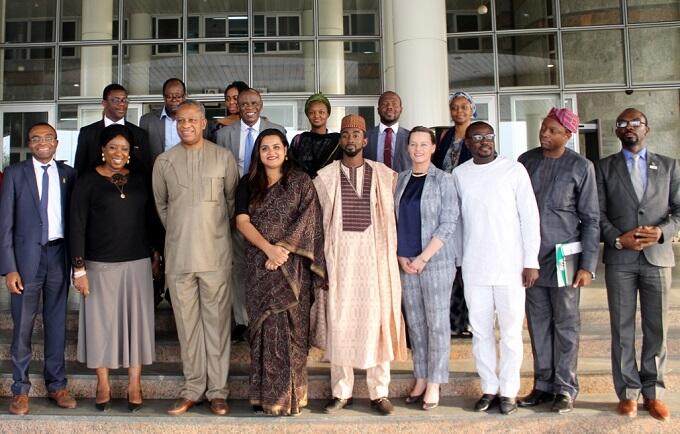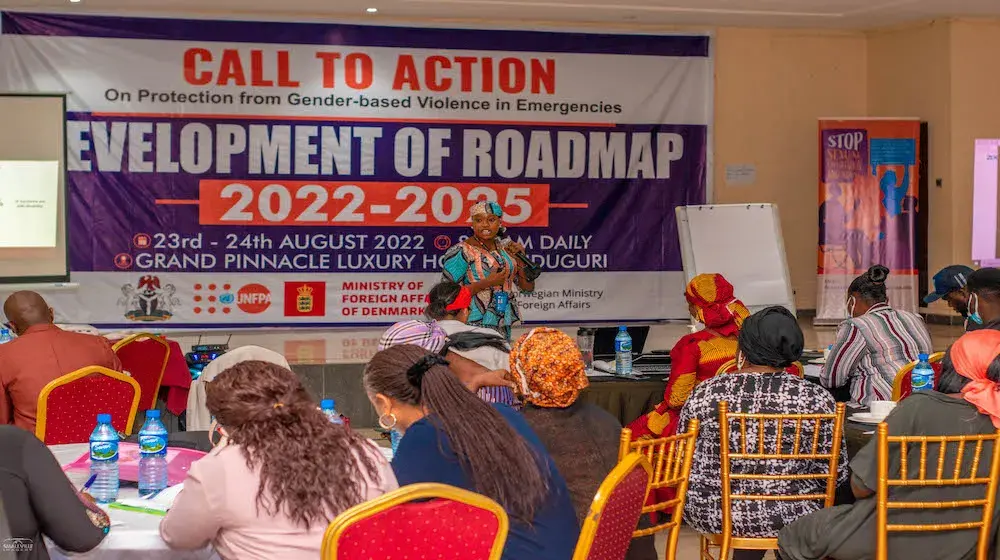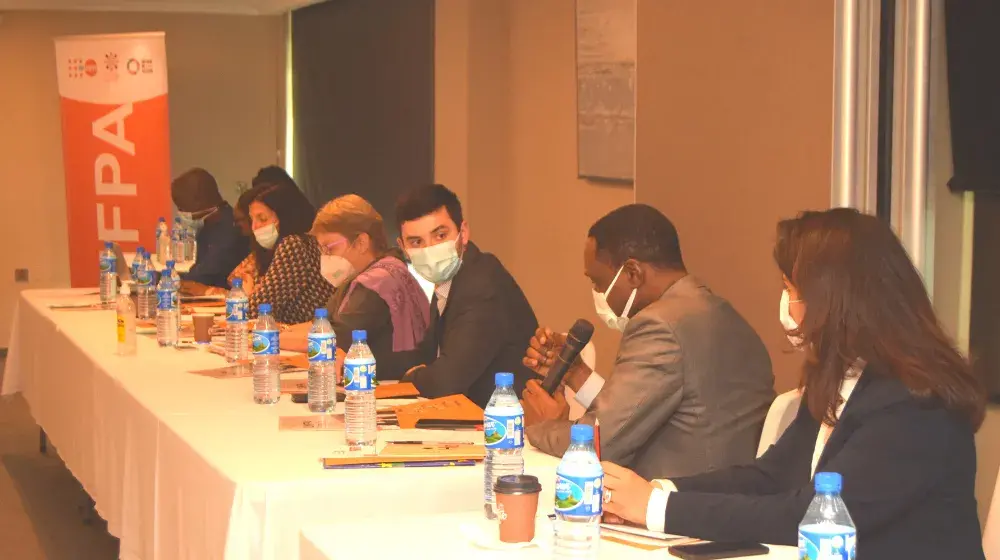Abuja, Nigeria - The UN Secretary-General’s Youth Envoy’s visit to Nigeria began with a meeting with the Nigerian Minister for Foreign Affairs, Goeffrey Onyema, in Abuja. Nigeria is the fourth in the Envoy’s 5-country Mission to Africa, and would last between 8-11 February. The Envoy was accompanied by members of her team and the UNFPA delegation, which included UNFPA Nigerian Country Representative, Diene Keita and UNFPA Ghana Country Representative, Mr. Niyi Ojuolape. Also in attendance was the Nigerian President’s Special Adviser on Youth and Student Affairs, Mr. Nasir Adhama.
The Envoy told Hon. Minister Onyema that the purpose of her visit in Nigeria was to meet young people where they are, and also have the opportunity to engage with some of the stakeholders in the country at the highest level. She noted further that Nigeria was a very important partner with respect to the realisation of the demographic dividend given its youth bulge, calls by His Excellency President Buhari in 2016 to the UN General Assembly for a dedicated Youth Agency and called for increased financial commitment to the UN, in addition to translating youth policies into tangible actions on the ground.
In response, the Minister noted that youth empowerment was something the Nigerian government was taking seriously, and that in fact, a proposal was currently being put together by the President of the country to find ways to integrate youth in the fight against corruption as he assumes his role as the African Union Champion on Corruption and Accountability in Governance. More so, he noted that challenges do exist, most prominent among them being education for girls, lack of skills and jobs for youth and irregular migration. “And by this,” he added “we feel that your visit is timely and extremely important” to galvanise our efforts to advance youth development.
On irregular migration, which seemed a recurring theme of discussion among both policy makers and youth, the Minister noted that there were complexities in tackling the problem as quickly as it should due to the paradox of free movement. African countries had spent many years developing border frameworks that allow for easier access for people to move between countries, hence cannot simply move back to stricter border restrictions to solve the problem. One of the ways to combat this in Nigeria has been to provide enhanced training to anti-human trafficking agencies to identify traffickers and those vulnerable to trafficking. Yet, beyond these measures, the Minister added, was the need to provide the right investment in young people and see their role in society “beyond sports and entertainment, and this informs our support for you [the UN Youth Envoy] and your efforts.”





